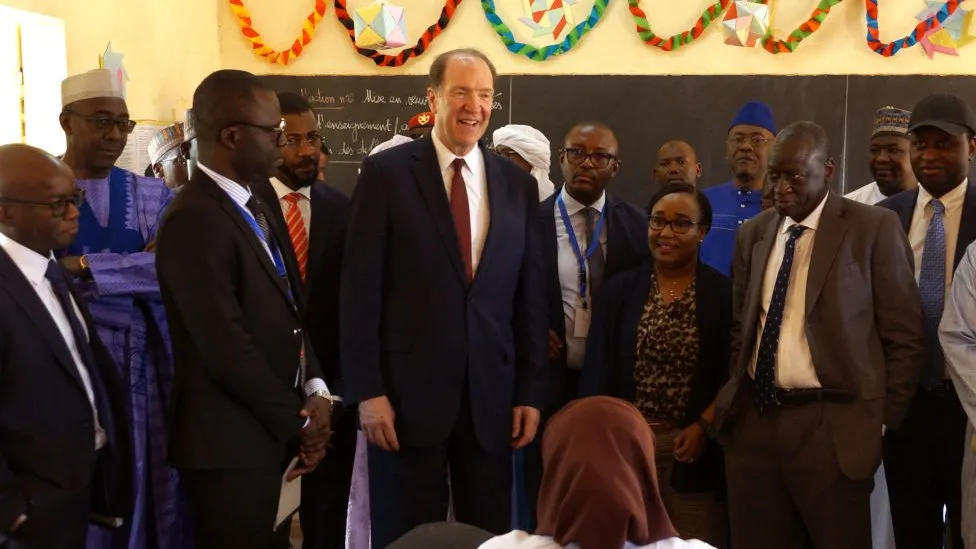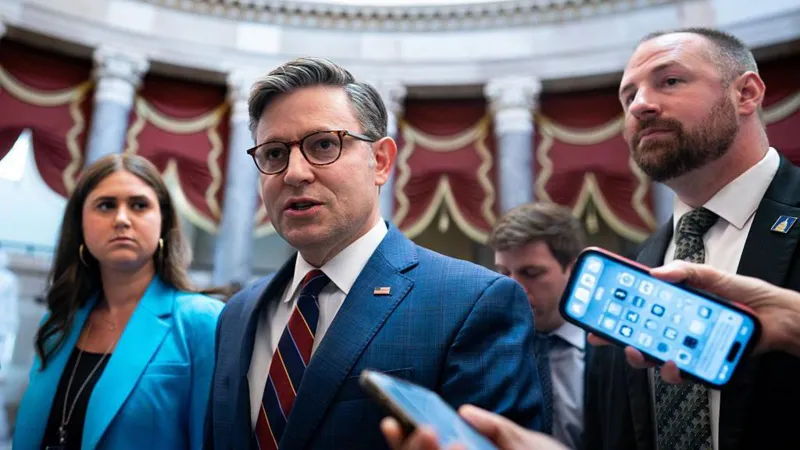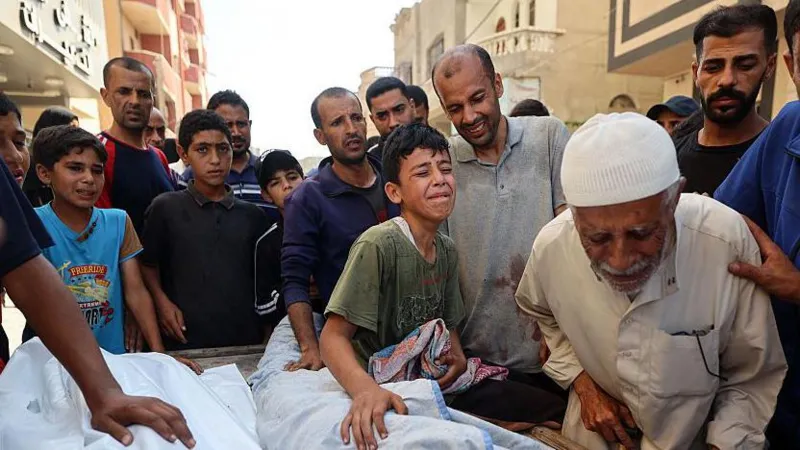China's loans to Africa worry World Bank President David Malpass
The president of the World Bank has told the BBC that he is concerned about some of the loans China has been making to developing economies in Africa.

David Malpass says the terms and conditions need to be "more transparent".
It comes amid worries that countries including Ghana and Zambia are struggling to repay their debts to Beijing.
China says that any such lending is done within international rules.
Developing countries often borrow money from other nations or multilateral bodies to finance sectors that will grow their economies such as infrastructure, education and agriculture.
However steep increases in interest rates in the US and other major economies over the last year are making loan repayments more expensive because lots of that borrowing is done in foreign currencies such as US dollars or euros.
It is a particularly acute problem for developing economies who can struggle to find the extra money that is required as the relative value of their own currency falls.
It is a "double whammy and it means that [economic] growth is going to be slower", says Mr Malpass.
Tackling that challenge and its consequences was one of the main reasons for this week's visit by US Vice-President Kamala Harris to three African countries. It is a visit that comes with big commitments of financial support to Tanzania and Ghana.
There is a growing rivalry with China for influence in the continent, whose abundance of natural resources include the metals, such as nickel, crucial for the batteries needed for technology such as electric cars.
Speaking in Ghana's capital, Accra, she said "America will be guided not by what we can do for our African partners, but what we can do with our African partners".
While highlighting a new nickel processing facility in Tanzania Ms Harris said the project would be supplying the US and other markets by 2026 and that it would "help address the climate crisis, build resilient global supply chains, and create new industries and jobs".
That collaborative approach was praised by Mr Malpass who said the competition between the world's two biggest economies was "maybe healthy for developing countries" as it provided different options.
"What I encourage strongly is that they be transparent in their contracts. That's been one of the problems; if you write a contract and say 'but don't show it to anybody else', that's a minus. So get away from that."
There was also a warning that "for governments in Africa, they shouldn't be offering collateral as an inducement to make a loan, because it locks it up for generations. That's been happening with China."
Beijing has become one of the biggest sources for loans to developing economies in recent years. A new study led by the Kiel Institute for the World Economy shows that globally China lent $185bn (£150bn) in bailouts to 22 countries between 2016 and 2021.
China refutes suggestions that it is exploiting other countries with its financial support.
At a press conference this week Foreign Ministry Spokesperson Mao Ning said China "respects the will of relevant countries, has never forced any party to borrow money, has never forced any country to pay, will not attach any political conditions to loan agreements, and does not seek any political self-interest".
Mr Malpass said the problems were not unique to Chinese financing but things were improving.
"If you think of the history of Western lending, sometimes it's not for the full benefit of the people in the countries [being lent to]. Even World Bank loans haven't always been for the best that could have been done in a country."
"So what we're trying to do, and I think everyone should be trying to do, is improve the quality of the lending.
"One of the techniques is to unbundle the loan, meaning if there's an investment project, let's say you're building a train, describe the project and what the cost will be. And then separately, arrange the financing.
"If you bundle them together, it makes it very hard to know, am I getting a good deal on the train or on the financing."
Food and energy concerns
The outgoing World Bank president is also concerned that higher food, fertiliser and energy prices, as a result of the war in Ukraine, are sapping government budgets in poorer countries. While that could deepen the economic challenges they face there is relief that price rises are now starting to ease.
"The immediate crisis is over but one thing that's been left is that countries didn't use enough fertiliser, so their soil is depleted. So the yields are expected to be lower next year than normal."
"So a farmer that was just making ends meet, she didn't get fertiliser, and now her land is not as productive. And so where's the food going to come from for the family and for the community? That's the big immediate problem. What we're trying to do is help countries directly with fertiliser [and] with food."
The World Bank is concerned that these challenges will worsen a first-ever increase in the global extreme poverty rate - people getting by on less than $1.90 per day. As a result of the coronavirus pandemic it rose from 8.4% to 9.3%.
The planet's leading development body hopes that its upcoming showpiece joint Spring Meetings with the IMF in Washington will help it raise more money to tackle its key mission.
"The ambition is there," says Mr Malpass, "but the needs are much bigger than the amount of flows" of money coming in.
-bbc







